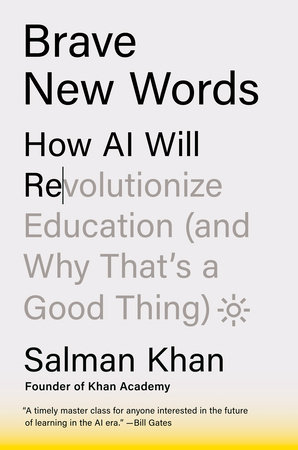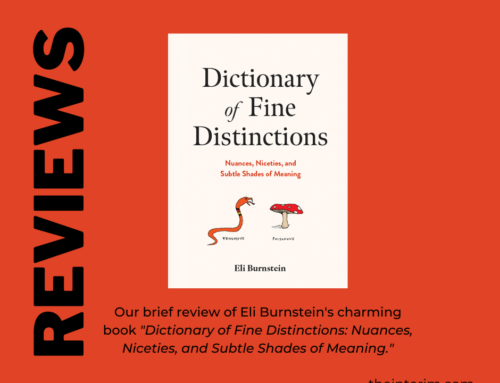Brave New Words: How AI will Re/volutionize Education (and Why That’s a Good Thing)
Salman Khan (Viking, $39.99, 237 pages)
 Salman Khan is the founder of the Khan Academy, a non-profit that provides free online educational instruction for all ages. His Khan Academy videos have been viewed billions of times by more than 150 million users as he has dedicated his life to making the internet an effective teaching tool for millions of school-age children. Khan explains in Brave New Words he has been working with OpenAI, the research laboratory that created ChatGPT, to create an artificial intelligence (AI) that can assist teachers and students. Khan a critic of the one-size-fits-all approach of schooling – hence the Khan academy videos that can be watched at different speeds, rewatched if necessary, skipped over if unnecessary – and is excited about the personalized education that AI could offer students. “By having this one-on-one attention, the student never feels stuck,” Khan argues, with AI allowing students to learn at their own pace and on terms that will unlock their excitement. A child interested in sports, Khan envisions, can set physics or mathematics questions on soccer or baseball themes. AI, Khan states, could also reinvigorate teachers by reducing burnout resulting from the production of lesson plans and the grading papers and tests. What, might one ask, will be left for teachers to do? Khan insists that their jobs would be safe, but it is hard to see how when the AI can do everything they do but better.
Salman Khan is the founder of the Khan Academy, a non-profit that provides free online educational instruction for all ages. His Khan Academy videos have been viewed billions of times by more than 150 million users as he has dedicated his life to making the internet an effective teaching tool for millions of school-age children. Khan explains in Brave New Words he has been working with OpenAI, the research laboratory that created ChatGPT, to create an artificial intelligence (AI) that can assist teachers and students. Khan a critic of the one-size-fits-all approach of schooling – hence the Khan academy videos that can be watched at different speeds, rewatched if necessary, skipped over if unnecessary – and is excited about the personalized education that AI could offer students. “By having this one-on-one attention, the student never feels stuck,” Khan argues, with AI allowing students to learn at their own pace and on terms that will unlock their excitement. A child interested in sports, Khan envisions, can set physics or mathematics questions on soccer or baseball themes. AI, Khan states, could also reinvigorate teachers by reducing burnout resulting from the production of lesson plans and the grading papers and tests. What, might one ask, will be left for teachers to do? Khan insists that their jobs would be safe, but it is hard to see how when the AI can do everything they do but better.
Khan is an AI enthusiast, and it is easy to get excited about the educational opportunities the new technology could unleash among students. “It is not that the technology is good or bad, it is how you use it,” Khan correctly observes. Used for good, AI can “enhance social connections, emotional development, and character,” but Jonathan Haidt reports in his new book The Anxious Generation, if social media technology is any indicator, the bad has a way of becoming the dominant force. AI seems likely to make learning faster and retention stronger, “proving AI to be the ultimate learning tool for accelerating human intelligence and potential.” At times, Khan sounds like a transhumanist, although he isn’t. He is a technophile that has trouble anticipating the potential harmful downsides of artificial intelligence. But his highly readable volume is a must-read for policy-makers and parents curious about ways in which AI could be harnessed to improve the educational experience of untold numbers of students – if only the unionized teaching professional did not have so much to lose from changing the technological status quo.




